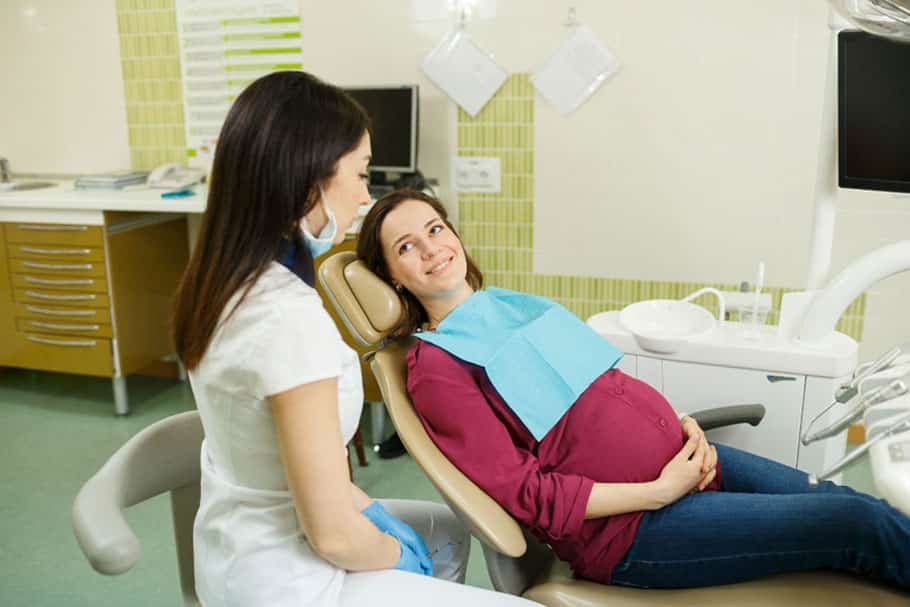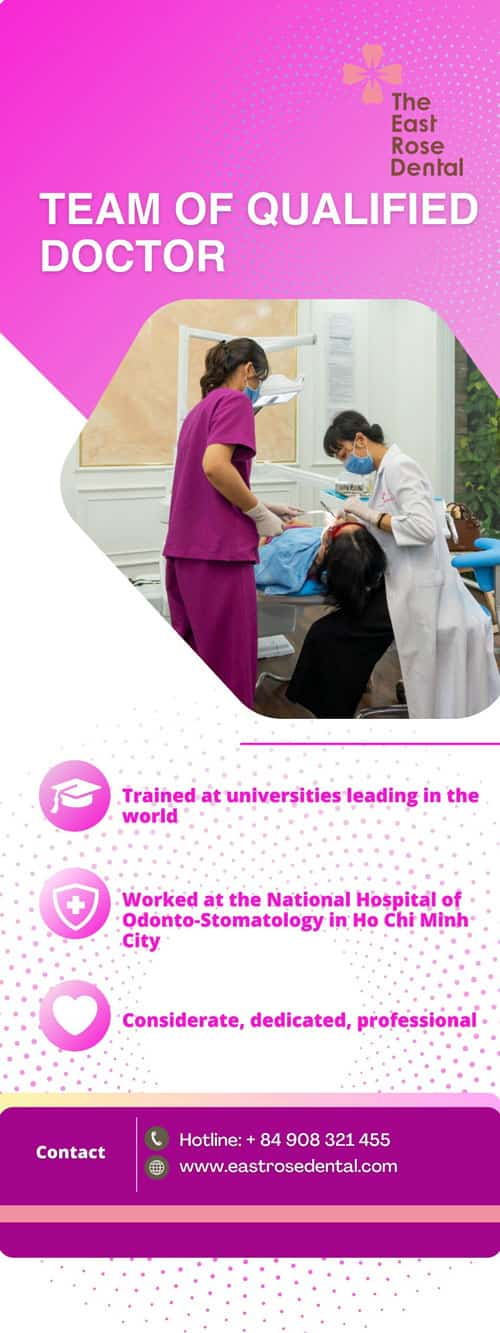Proper oral care during pregnancy
Pregnancy is a particularly sensitive period, when health problems often appear, especially related to teeth. Therefore, dental care for pregnant women is extremely important. So how to properly care for pregnant women, follow the advice from the dentist below.
How important is oral care during pregnancy?
Since 1996, research by scientists around the world has confirmed a fact: Pregnant women with gingivitis and periodontitis face a higher risk of miscarriage, premature birth, and the risk of miscarriage. Preeclampsia increases 2-3 times. In addition, children born to mothers with gingivitis and periodontitis often have a weight below normal, usually less than 2.5 kg. When suffering from gingivitis or periodontitis, the mother's mouth often contains a large amount of harmful bacteria. These bacteria can move from the mouth into the uterus, causing increased amniotic fluid production and causing problems such as premature labor, premature birth, and low birth weight. That's why clean and proper oral care is very important.

Furthermore, the mother's gingivitis during pregnancy also affects calcium absorption for the fetus. This decrease in calcium absorption can cause the fetus to not gain enough weight and not develop properly.
Read more: What is gingivitis? 7 home remedies treatment
Dental care tips for pregnant women
1. Daily care
Pregnant women should maintain the habit of brushing their teeth at least twice a day, using dental floss to thoroughly clean areas where teeth rub. Especially, if you have the habit of eating sweets or eating continuously, oral hygiene after each meal becomes extremely important to prevent the growth of harmful bacteria. Using physiological saline is a natural and safe method to gargle, effectively eliminating bacteria.
2. Balanced nutrition
During pregnancy, pregnant women's nutritional needs increase, especially providing adequate amounts of calcium and phosphorus to protect the teeth and bone health of mother and fetus. Add foods rich in calcium such as milk, fish, eggs, green vegetables, and consider using calcium supplements specifically for pregnant women after discussing with your doctor.
3. Regular dental check-ups
Regular dental visits not only help detect dental problems early, but also allow the doctor to evaluate and advise on appropriate care measures. Especially when signs such as swollen gums, toothache or bleeding gums appear, seeing a dentist immediately is necessary to avoid serious dental problems during pregnancy.
Read more: Molar cavities: Causes and Prevention
Some notes related to dental treatment for pregnant women
During pregnancy, oral care is very important, especially when pregnant women have problems such as gingivitis or tooth decay. Here are some things to keep in mind:
- Choose the right time: Tooth filling or tooth extraction should be chosen at the right time, avoid during the first 3 months of pregnancy. It should usually be done in the 7th or 8th month of pregnancy.
- Regular dental scaling: Regular dental scaling helps remove bacteria and maintain oral health. Teeth should be removed every 3 or 6 months.
- Treat gingivitis properly: Treat gingivitis according to your doctor's instructions, using herbal medicines or salt water to reduce inflammation. Avoid using Western medicine without the guidance of a specialist.
To ensure oral health during pregnancy, dental care is an indispensable part. Every pregnant mother needs to realize that dental care is not just a small matter, but an important part of overall health.
Services
Working Time
- Monday - Friday: 08:00 - 19:00
- Saturday: 08:00 - 18:00
- Sunday closed
Contact Info
- Hotline 1: (+84) 908 321 455
- Hotline 2: (+84) 931 857 885
- Mobile: (+84) 8 3925 8778
- Phone: (+84)2 838 258 778
- info@dentalrose.net
- rosedentalclinicvn@gmail.com
 English
English  Tiếng Việt
Tiếng Việt

